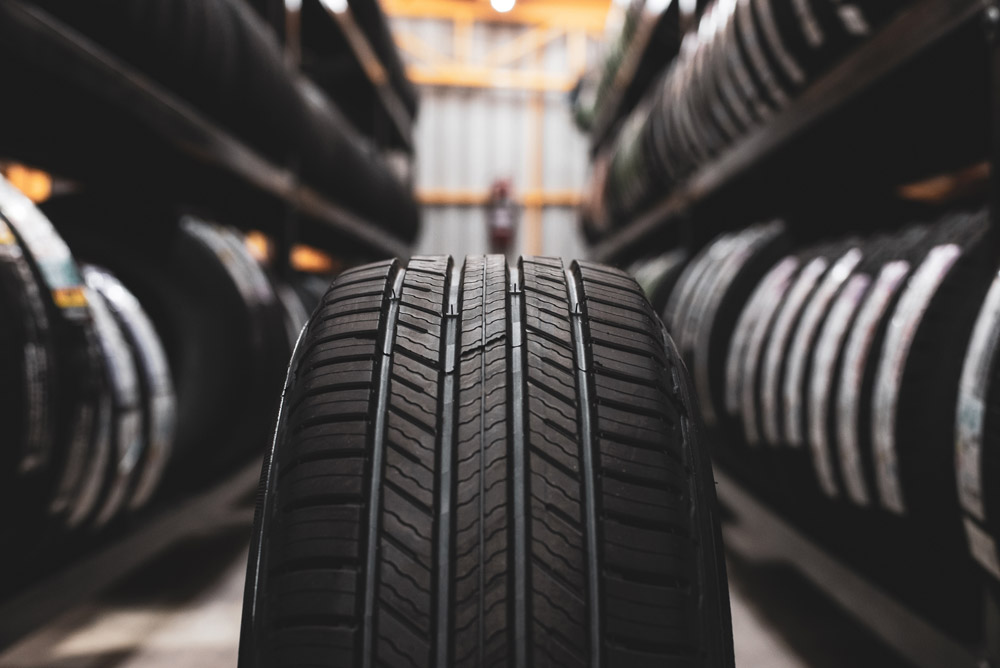
Respecting the Mileage
In terms of the parts of a car, it doesn’t get more fundamental than the tires. After all, ever since we were children we’ve been singing about the wheels on the bus or how the Batmobile lost its wheels, while as adults we see rims as a new arena of self-expression.
The plain fact is that no matter how much chrome we pile on those hubcaps, or whether they spin, or light up, or shine in the sun, the tires remain an integral part of the identity of our car and play the most important role in its locomotion. Every other component of the vehicle is (arguably) expendable but if you don’t have tires, you don’t have a car.
Bearing their importance in mind, it’s clear that we must be diligent about taking our car to a Master Muffler car repair center on at least a semi-regular basis if we want to keep our tires in working order. That means being aware of our mileage and the structural integrity of each wheel.
Signs of Needed Change
Tires have quickly become one of the foundational services that we offer at our Kearns car repair shop. When checking them during a tune up or a rebalancing, there are five scenarios in which we would determine that they should be changed out immediately. Because tires generally have to be replaced in a set, many people avoid heeding our warnings because of the admittedly high expense, but their cost is quickly put in perspective when one considers how much hospital bills cost after an ill-timed blowout.
Your tires have gone bald
Tires today are known for their distinctive tread patterns and spiky grips. Each specialty tire, whether that’s snow tires, mud tires, agricultural tires, airplane tires, or anything else, all have their own special treads.
Baldness, or when those treads have worn down to the tire wall, is the easiest way to tell that it’s time to replace them. This will make any maneuver difficult to execute well and can be extra unsafe in adverse weather conditions.
Your treads are too shallow
If your tires aren’t outright bald, they are certainly balding. This is a natural part of the life of every tire that has logged significant mileage on the road. At their core, tires are simply rubber balls that become smooth like a stone in a river, thanks to the friction of the rubber with the asphalt.
Each tire comes with a recommended tread depth from the manufacturer. Once the grooves are shallower than this measurement, it’s time to replace them. Usually, that is 2/32”. If you’re unsure of what that actually looks like, there are a few methods of finding out:
- A formal tread depth gauge uses sensors on a dipstick to measure the tread walls. A digital readout will display the depth.
- The penny method is just as reliable. Place Lincoln’s head down into the tread — if you can still see the crown of his head, you need new tires.
Our car repair technicians will be able to recommend better tires for your vehicle if it’s determined that you need some new ones.
Your tires appear cracked
Like cracks in the pavement that open even more in an earthquake, tire cracks can be a sign of serious structural damage. Considering how much pressure your tires bear as you travel, all the while bumping against the road, the car provides all the seismic activity the tire needs to completely crumble.
If you’re unsure that the tire wall has cracks in it (they can be hard to see in the dark rubber), simply shine a flashlight on the tires.
Your car shakes as you drive
While some shaking is normal as you travel over different types of terrain, the shaking of a tire at the end of its life feels particularly violent. It may be that the tires are misaligned or the cracks are finally giving way — whatever the case, your tires will likely need to be exchanged for new ones.
A tune-up of your vehicle at our Kearns car repair center may show that the shaking is more a result of a problem in the drive train or faulty internal components. Either way, our technicians can fix the problem.
Your warranty has expired
Perhaps you feel that your car is driving just fine and that your tires aren’t showing any advanced signs of aging. Your warranty is designed to spare you money and a headache when your tires finally become unsuitable for the road, so it’s best not to ignore it.
There are numerous types of warranties for your tires. Check with your car’s manufacturer or your tire provider to learn more about how long your tires are rated to safely operate.
Related Posts
As an EV owner, understanding your vehicle's battery is critical. From its capacity to its lifespan, and everything in between, we'll guide you through what you need to know to optimize your EV experience. So buckle up and get ready - we're about to shed some light on the electrifying world of EV batteries. What [...]
If your car is running hot, it can be a sign that something’s not right with your engine. Fortunately, diagnosing the cause of an overheating engine isn't too difficult if you know what to look for and how to address it. Keep reading if you want to learn the most common issues that occur when [...]
Your vehicle's exhaust system serves a critical role in managing the byproducts of the combustion process and ensuring optimal engine performance. The appearance of colored smoke from the exhaust pipe, either when stationary or accelerating, can provide valuable clues to underlying mechanical issues. What is a car exhaust? A car exhaust is a system [...]





